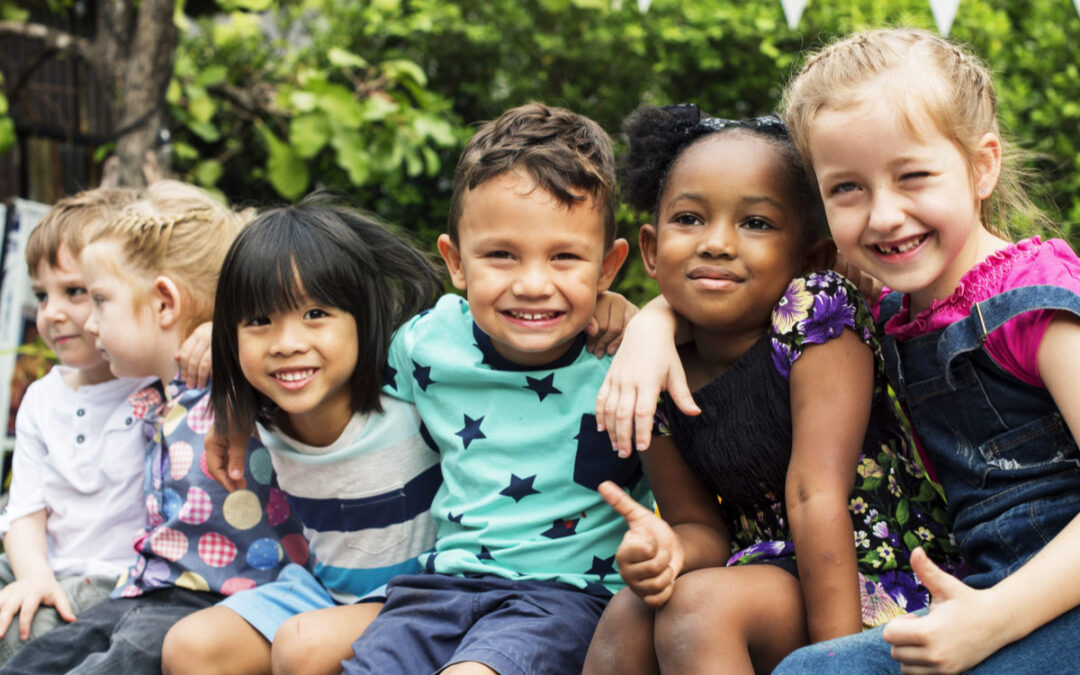Smile
A smile is the simplest way to be kind. A warm smile can make more of a difference than you might think, and sharing this small gift communicates to your child its importance. Smile at your child to convey your love, and smile at strangers to spread the wealth. By demonstrating this powerful act of kindness, your child will learn by example.
Practice Generosity
You can tell your child all you want that they need to share—if you aren’t sharing yourself, they aren’t getting the message. Demonstrate generosity in your daily life, whether it is through sharing your ice cream with your spouse or giving a gift to your child’s teacher. Beyond being generous with those who directly touch your life, give back by showing compassion to those in need. Donate your things and volunteer your time. You may find a cause that you and your child can both care about that allows you to regularly volunteer, such as feeding the hungry at a soup kitchen. Look for opportunities to be generous so your child learns to do the same.
Model Positive Action
What you do and say is critical; let your child catch you in the act of kindness, such as driving an elderly neighbor to the store or offering a comforting word to a friend. Most parents start this role-modeling from day one. “They talk while feeding their baby, saying, ‘a little bit of food for baby, a little bit of food for me,'” says Stacey York, a child development instructor. “This lays the foundation for a lifetime of give-and-take and openness with people.
Be Sensitive to Messages That Your Child Picks Up from the Media
Children are just as likely to imitate kind actions they see in movies and read about in books as they are to act out other types of scenarios. Be aware of the programs and movies your child watches and be available to talk about what they see. Also, encourage reading books that focus on caring and compassion.
Teach Empathy
You are protective of your child, so when they have a spat with another child, it may be tempting to point fingers. Instead, use these moments as an opportunity to teach empathy. Listen to the story without judgment. Then, look for where you could encourage empathy; for example, you may say, “Your friend doesn’t usually yell, so maybe they were tired or bothered about something else. What do you think?” Encourage your child to think critically about where others are coming from.
Let your Child Know Often That How They Treat Others Matters to You Greatly
For example, a child might think it’s funny to see someone get splashed if a car drives by and hits a puddle. You can point out, “That lady is not laughing at what happened. Look at her face. She looks sad. Her clothes are dirty and wet now.”
Don’t Let Rudeness Pass
You might say, “Wow, that cashier must have had a really bad day to talk in such a mean voice to us at the supermarket. What do you think?” This teaches your child that when someone is nasty to you, you don’t have to be mean in response.
Show Your Child How to Help People in Need
You can encourage your child to donate a toy he has outgrown to the annual toy drive, while you buy a set of blocks to give away. He can also help you make cookies for a shelter and come with you when you visit someone in the hospital or nursing home.
Reinforce Kind Behaviors
When your child is kind, it is a good opportunity for you to use positive reinforcement. You could try a “kindness jar,” in which you place a marble or bead every time they perform an act of kindness. When it’s full, you can reward them with a special activity or a coveted toy. Alternatively, you can communicate the importance of kindness by praising the behavior. Express your appreciation of their care when you see it in the moment.
Give Affection Freely
Your child is not a baby anymore, so you don’t want to coddle them, but everyone benefits from love and affection. In those moments when everyone in the house is feeling grumpy, it can be tempting to withdraw your affection, but these times create teaching moments. In response to tough times, give your child a hug. This not only helps them, it helps you—hugs release dopamine, giving you both a lovely little mood boost. This also shows your child the power of love and kindness in difficult moments.

